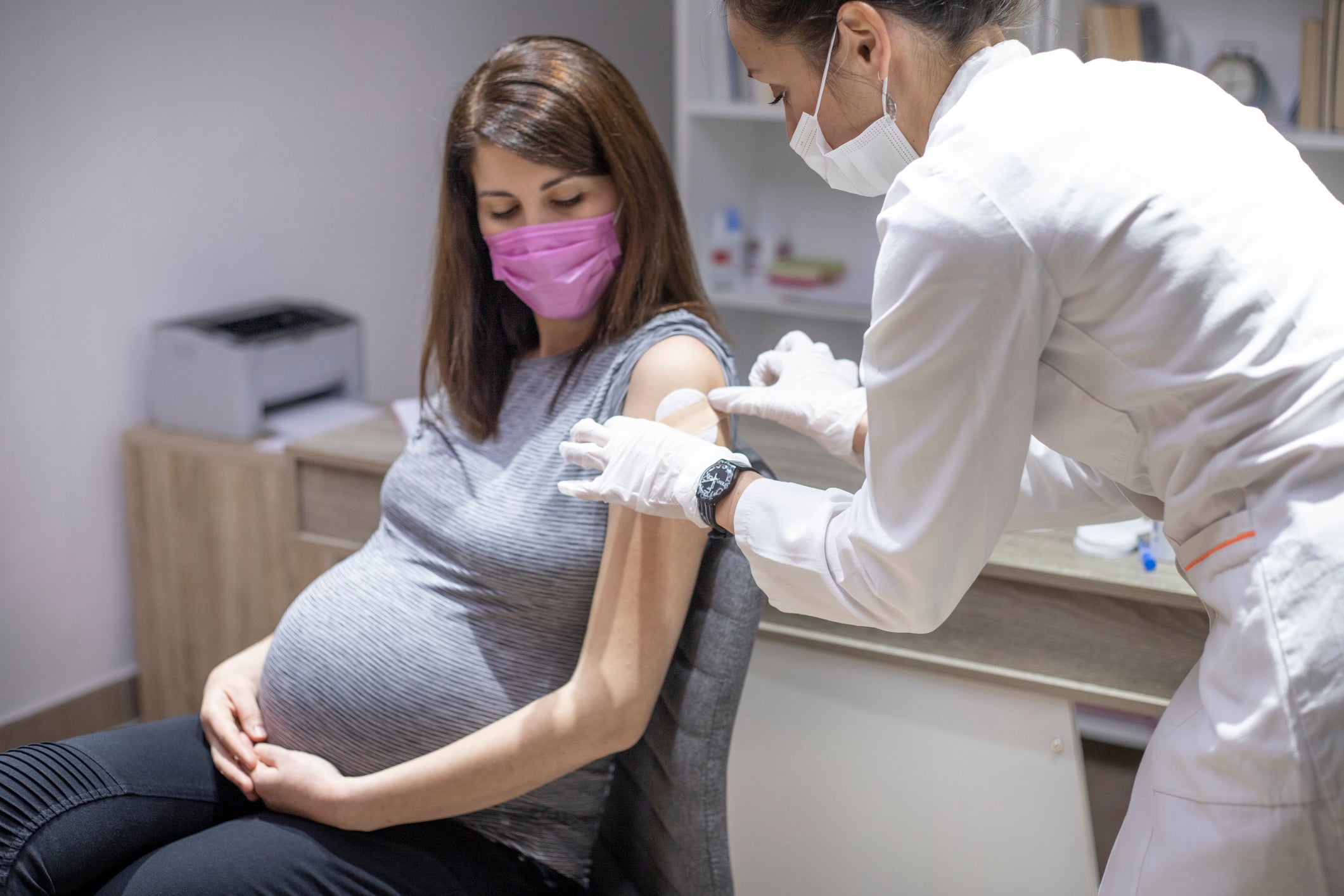Pregnant women safe to get Covid mRNA vaccines
Researchers found that 7.3 per cent of pregnant women who got the shot experienced side effects, compared to 11 per cent of non-pregnant women

Your support helps us to tell the story
From reproductive rights to climate change to Big Tech, The Independent is on the ground when the story is developing. Whether it's investigating the financials of Elon Musk's pro-Trump PAC or producing our latest documentary, 'The A Word', which shines a light on the American women fighting for reproductive rights, we know how important it is to parse out the facts from the messaging.
At such a critical moment in US history, we need reporters on the ground. Your donation allows us to keep sending journalists to speak to both sides of the story.
The Independent is trusted by Americans across the entire political spectrum. And unlike many other quality news outlets, we choose not to lock Americans out of our reporting and analysis with paywalls. We believe quality journalism should be available to everyone, paid for by those who can afford it.
Your support makes all the difference.Covid mRNA vaccines are safe for pregnant women, found a Canadian study, providing further reassurance of the safety of the vaccine during pregnancy.
Pregnant women are at higher risk for more severe coronavirus infections, but the study shows that they experienced fewer significant health problems after getting vaccniated than non-pregnant women of the same age.
The study, published in the journal Lancet Infectious Diseases, compared the side effects for pregnant women after receiving the Pfizer and Moderna mRNA vaccines to a control group of vaccinated non-pregnant women of the same age, as well as a group of unvaccinated pregnant women.
Some 191,360 women completed a survey after their first vaccine dose, and 94,937 completed a survey after the second dose.
Researchers found that 7.3 per cent of pregnant women who got an mRNA-based Covid shot experienced potential side effects within a week after their second dose, compared to 11 per cent of non-pregnant women.
The most common side effects reported by pregnant women after their second dose were feeling unwell, having a headache or migraine or a respiratory tract infection.
Further research is needed into future mRNA vaccines to show whether the reduced side effects in pregnant women were due to the mRNA vaccine platform or potentially a feature of these particular shots, said Dr Julie Bettinger, a vaccine safety scientist at the British Columbia Children’s Hospital Research Institute, and the study’s senior author.
The Canadian team focused on health outcomes within the first seven days after vaccination, though researchers said they were continuing to follow up on the findings.
Lead author Dr Manish Sadarangani, from the British Columbia Children’s Hospital Research Institute, added: “In the early stages of the Covid-19 vaccine rollout there was low vaccine uptake among pregnant people due to concerns about data availability and vaccine safety.
“Large, observational studies like ours are crucial for proper understanding of the rates of adverse health events in pregnant women after different doses of Covid-19 vaccination.”
She added: “This information should be used to inform pregnant women about the side effects they may experience in the week following vaccination.”
Join our commenting forum
Join thought-provoking conversations, follow other Independent readers and see their replies
Comments